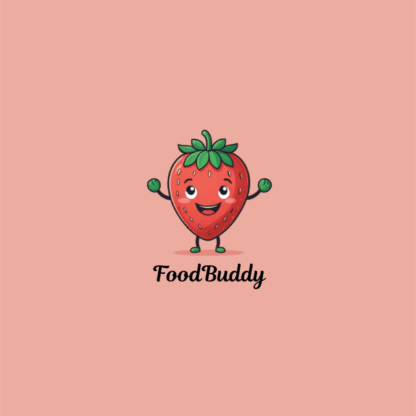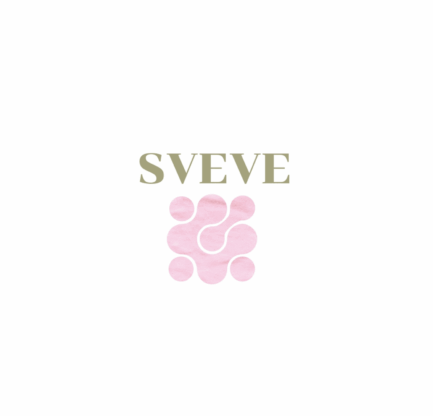1.place
Builtstop
Builtstop is a pioneering engineering initiative aimed at addressing the vulnerability of existing buildings in earthquake-prone regions. A significant portion of the global building stock is located in seismically active areas and lacks compliance with modern regulations, making retrofitting essential. However, traditional techniques are often expensive, invasive, and environmentally damaging.
Our innovation, the NegSV, is a minimally invasive seismic retrofitting device. Our dedicated engineering team has developed the NegSV through multiple design iterations, validated extensively in laboratory tests. The system is installed on the top storey and introduces negative stiffness to the structure with the use of lightweight components. It significantly enhances the dynamic response of the building without requiring major structural modifications or external energy supply. These features preserve the structure’s integrity and allow for quick installation without displacing occupants.
Builtstop’s highest priority is to ensure human safety during severe earthquake events. Our innovative approach protects existing infrastructure and supports the development of sustainable cities, while contributing to climate action and responsible component manufacturing. Builtstop seeks to make seismic safety accessible, protecting lives, cities, and the environment via intelligent engineering.
2.place
Anura-League
Anura-League is a location-based mobile game with trading card elements designed to get Generation Z excited about biodiversity. Our founding team, consisting of Sandro Ulrich, Keegan Jornot, Fabio Ulrich and Mauro Gwerder, share a passion for video games and nature.
The core challenge lies in the alarming decline of biodiversity, which young people are often not interested in because existing learning opportunities do not reach them effectively. We use entertainment as the main motivation to bring this tech-savvy target group into contact with biodiversity in a playful way.
In the game, players explore their real environment using AI image recognition and augmented reality, collect species, create digital trading cards and compete in exciting competitions. In addition, we motivate and support them to promote biodiversity on their balcony or in their garden.
The impact of Anura-League is diverse: we inspire young people for nature conservation and strengthen their connection to nature through direct experience, knowledge acquisition and self-efficacy in gardening. We want to direct their enthusiasm towards real animals and plants so that teenagers can contribute more actively to the preservation of biodiversity.
2.place
weLoop
weLoop helps fashion brands make the shift from eCommerce to reCommerce. Our plug-and-play software lets brands add resale, rental, repair, trade-in, and subscription models directly into their existing Shopify or WooCommerce stores, without changing platforms, logistics, or workflows.
By turning one product into multiple sales, brands boost revenue, build loyalty, and stay ahead of EU regulations, all while reducing waste and extending the life of their garments.
We call this Circularity-as-a-Service and this goes beyond a single plugin. We believe consumption habits are shifting toward reuse, rental, and exchange. As these behaviors grow, commerce flows will become more complex. And our goal is to provide the infrastructure that will enable, manage, and track circular flows at scale, making sustainable consumption not just a choice, but the new standard for commerce. .

Crabspace
Every day, an area equivalent to nine football pitches is built on in Switzerland. But why build new buildings when there is already space available?
With Crabspace, we transform unused spaces into lively places. Whether for workshops, cultural events or leisure activities. And we do so precisely when they are empty. We build bridges between space, events and communities.
Just like hermit crabs, we use what is already there. Resource-efficient, local and creative.
SendMeBag
The growing number of online orders is generating enormous amounts of packaging waste. Single-use cardboard boxes end up in the rubbish after just one use, wasting valuable resources and harming the climate. At the same time, customers have always viewed shipping as purely functional and have no easy way to act more sustainably.
This is exactly where SendMeBag comes in. Instead of using new boxes, online shops pack their products in reusable shipping bags. Customers receive their orders as usual and then simply fold up the empty packaging and return it free of charge to the nearest yellow post box. In doing so, they start a new cycle and automatically become part of the circular economy. Our solution was developed with a focus on cost-effectiveness and simplicity. For online shops, this means less waste, lower CO₂ emissions from the second use of the packaging onwards, and sustainable logistics that pay off. From the eighth cycle onwards, a SendMeBag saves more than 80 percent CO₂ compared to conventional cardboard boxes.
With SendMeBag, retailers can make sustainable shipping a tangible experience, increase brand loyalty and position themselves credibly as sustainable players. This strengthens customer trust and creates a clear advantage in a growing market that demands real solutions instead of empty promises.


FoodBuddy
FoodBuddy is your household assistant that makes your life easier when it comes to food.
FoodBuddy is turning home cooking on its head by rethinking how we handle food step by step. As students and young professionals, we know how quickly it happens: you go out for a spontaneous meal, buy the wrong quantities or lose track of what's in the fridge, and before you know it, good food ends up in the bin.
We ourselves have probably thrown away hundreds of pounds worth of food in our shared flats, student kitchens and commuter apartments simply because we couldn't get organised. In the UK, 190 kg of food waste is generated per person every year, almost 40% of which comes from private households. This is ecologically disastrous and also has a noticeable financial impact on many of us.
If we want to continue eating spontaneously, cheaply and deliciously without constantly producing waste, something has to change in our everyday lives. This is exactly where FoodBuddy comes in: the app automatically recognises what you have at home, reminds you in good time, gives you clever recipe suggestions, and soon you will even be able to pass on leftover food in your neighbourhood.
Now we want to develop the app further together with users and developers. Because we believe that it is possible to eat better without sacrifice, but with a system.
LoopED
The fashion industry is one of the most environmentally damaging industries in the world: CO₂ emissions, textile waste, enormous water consumption and, at the same time, massive social exploitation in the countries where production takes place. Even children grow up with a throwaway mentality promoted by fast fashion, while everyday skills such as sewing, repairing or critical consumer thinking are hardly taught in schools. This is exactly where LoopED comes in. We are an interdisciplinary team of five people developing a workshop for sixth-grade primary school classes in Switzerland that imparts knowledge, promotes creativity and brings craftsmanship to life. We are developing the workshop in close collaboration with teachers and sustainability initiatives to ensure maximum practical relevance. Children learn in an age-appropriate way how clothes are produced, what global consequences this has and what they can do about it in their everyday lives. Through creative upcycling, simple sewing techniques and the use of existing school infrastructure, we promote self-efficacy, environmental awareness and creative skills. LoopED is based on Curriculum 21 and can be flexibly integrated into lessons. Teachers benefit from a ready-made, low-threshold educational programme with direct practical relevance. The workshop not only raises awareness, but also has a long-term effect: clothes are repaired instead of thrown away, and consumer decisions are made thoughtfully instead of impulsively. The ecosystem benefits from resource conservation, waste prevention and lasting behavioural changes.


Sveve
Indoor spaces are often louder, more polluted, and ecologically outdated than we think. Conventional acoustic panels are typically made from fossil-based foams or mineral fibers. They can’t be recycled and do little to improve air quality or reduce resource use. At the same time, the world is facing a textile waste crisis with over 90 million tonnes generated each year, most of it incinerated or dumped in landfills. This is where Sveve comes in. Our idea: a modular, 3D-printed acoustic wall panel made from recycled textile powder, a natural binder, and biochar. The result is a sculptural surface that absorbs sound, filters VOCs and fine dust from the air, and can be fully recycled into new panels at the end of its life. Sveve stands for a different kind of interior design: one that not only brings aesthetic value, but also improves functionality and well-being in the spaces we live and work in. We want to upcycle textile waste into healthy, circular interior elements that spark conversation and drive change in how we build and furnish our everyday environments. Our motivation goes beyond product innovation: we believe material design can be both regenerative and aesthetically pleasing. Sveve is our way of making circularity visible and touchable.
GlowPops
GlowPops is an innovative frozen dessert start-up redefining the standards of indulgence through health-conscious innovation. Positioned at the intersection of clean nutrition and food design, GlowPops offers entirely plant-based, naturally sweetened popsicles—crafted without refined sugars or additives and developed with a strong emphasis on whole-food integrity.
The venture emerged from a critical observation: the frozen dessert industry remains largely dominated by ultra-processed products, offering little in terms of nutritional value or ingredient transparency. GlowPops was conceived to bridge that gap — merging sensorial pleasure with nutritional clarity.
Since 2024, the team has been engaged in extensive R&D, in close collaboration with a food engineer, and supported by iterative user testing.
We are currently in the prototyping phase, with our first commercial production scheduled for summer 2026. Distribution will target carefully selected retail locations, cultural events, and cinema venues across Switzerland.
GlowPops aspires to contribute to a broader shift in food culture — one that values ingredient simplicity, nutritional awareness, and sustainable enjoyment.


PVelion
Clean Energy Starts with Clean Panels – we are a team of ETH students developing an automated, water-free cleaning solution for solar panels. In desert regions, solar panels lose up to 30% of their yield, and today they are still mostly cleaned with water and manpower. Our solution saves billions of litres of water every year, reduces costs and increases energy yield. This is how we make solar energy more efficient and sustainable.
